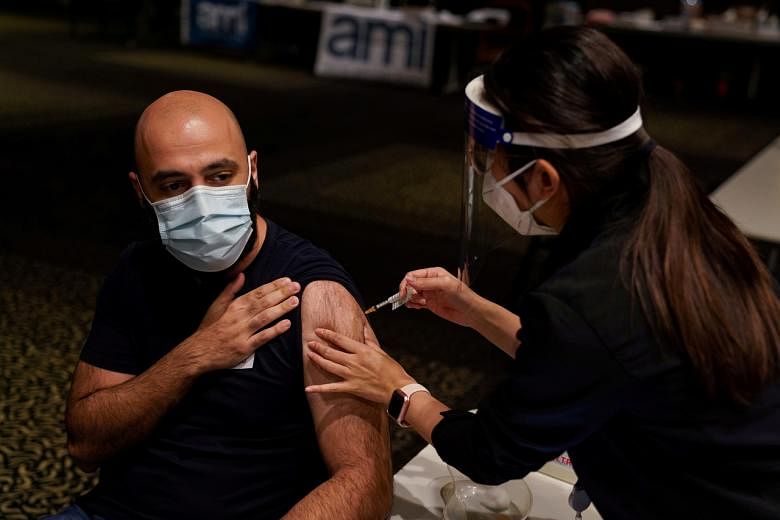SYDNEY (XINHUA) - New research from Australia's University of New South Wales (UNSW) has shown that a third "booster" shot of the Covid-19 vaccine would be required to stay well protected against the virus.
The study published in the Lancet Microbe journal and released to the public on Thursday (Nov 18), was the first and largest study in predicting the efficacy of vaccines.
It revealed that in order to keep vaccine efficacy above 50 per cent, booster shots would be necessary within one year of receiving the initial two doses.
Lead author on the study, and leader of the Infection Epidemiology and Policy Analytics Group at UNSW's Kirby Institute, Dr Deborah Cromer said that new variants, such as the highly transmissible Delta variant, have shown greater resistance to current vaccines over time.
"Our study shows reduced efficacy against Covid-19 disease resulting from other variants, such as Delta," said Dr Cromer. "This efficacy declines with time, and our analysis is able to pre-emptively predict this decline based on analysis of antibody levels."
She said the research would bear major implications as countries around the world look to maintain high levels of protection across the society.
"Without boosters, protection from symptomatic Covid-19 may drop below 50 per cent after six months, which means more people will become infected," she said.
Australia's Department of Health began offering booster shots to the public from Nov 9, but it has not yet been considered a requirement to constitute being fully vaccinated.
Contributing author Professor Jamie Triccas from the University of Sydney added that this research would lay the groundwork for assessing the levels of protection against future potential strains of Covid-19.
"It is likely that new Covid-19 variants will continue to emerge, as we have seen with Delta, with varying transmissibility and severity," said Prof Triccas.
"Essentially, we can predict how current vaccines will work against new variants, and test the efficacy of new vaccines... That's a huge win for the battle against Covid-19."











